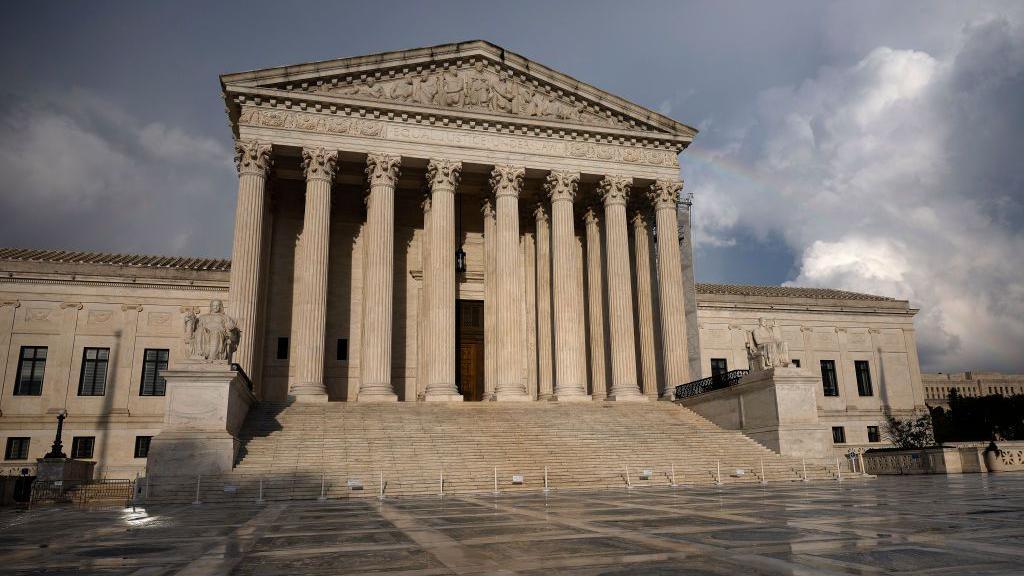US Supreme Court declines to lift block on expanded trans student protections

- Published
The US Supreme Court has temporarily blocked a new rule from the Biden administration meant to protect students from discrimination based on gender identity.
The court order issued on Friday rejects a request by the White House to be allowed to temporarily enforce the rule in a number of states.
The ruling is a victory for the Republican-led states that had objected to the rule, and a blow to trans rights activists.
However, the order does not settle the issue and allows legal challenges to continue in lower courts.
The new federal rule issued by the Biden administration in April expands the parameters of a 1972 law known as Title IX, which bars sex discrimination in schools that receive funding from the federal government, including most universities.
The rule sought to clarify the definition of "on the basis of sex" in the law to include gender identity.
Ten Republican-led states challenged the rule, which went into force on 1 August in some parts of the country.
They sued to block it from taking effect in their jurisdictions and won the cases in lower courts in Louisiana and Kentucky.
The Supreme Court's ruling now punts the issue back to lower courts.
The court's decision came in a 5-4 vote. Conservative Justice Neil Gorsuch joined the court's three liberal justices in his dissent.
The attorney general of Tennessee, which has objected to the Biden administration's new rule, issued a statement calling the move by the high court "a win for student privacy, free speech and the rule of law”.
Cathryn Oakley of Human Rights watch called it "disappointing that the Supreme Court has allowed far-right forces to stop the implementation of critical civil rights protections for youth”, according to the New York Times.
Transgender rights have become a major political issue in recent years in the US.
Conservatives in Republican-led states have passed laws banning students from using toilets that do not match their sex recorded at birth or stopping trans women from playing in all-female sports teams.
The new rule did not specifically address sport, but did ban schools from treating transgender students differently from classmates, including through bathroom access.
In their majority opinion, the court wrote that it was declining to block the lower courts' rulings which had found “the new definition of sex discrimination is intertwined with and affects many other provisions of the new rule”.
Correction 9 September: This article was amended to make clear that Republican lawmakers' ban on students' use of toilets and membership of sports teams was based on sex recorded at birth, rather than gender which is incorrect.